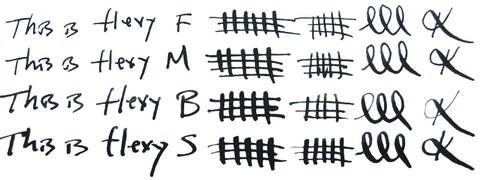Danitrio Tsugaru-nuri Nanako-nuri in Red on Hyotan Fountain Pen
Starting at $270/mo for 6 month no-interest installments, 10% down using 
Learn about our Payment Relief Plan. |
|---|
✓ 100% Genuine Urushi
✓ Hand-painted by highly-trained Japanese Artisans
Product Video:
Product Description:
Nanako-nuri is one of the styles of Tsugaru-nuri artwork that originated from the Aomori Prefecture of Japan. In nanako-nuri, there is a pattern of small fish egg patterns typically of a color that contrasts with its background color scattered throughout the entire pen body. Tsugaru-nuri's inception was first in lacquerware in the Edo Period few hundred years ago when there was a search for a style of art that would depict the symbol of nobility, prestige, and extravagance.
About Danitrio Hyotan Fountain Pen Series:
The Hyotan in Japanese means "Gourd" or "Calabash", which is a fruit that can sometimes come in an hourglass shape. This series of pen does come in the hourglass shape; in the US, collectors of Danitrio pens have coined it the Mae West, one of the biggest Hollywood stars in the twentieth century known for her hourglass figure.
Nib Details:

This pen is furnished with an 18k Gold, two-toned #6 nib. What has been described by many Danitrio collectors as the fireball nib is an image of “Kaen-Kohai” which is a flame-shaped halo of “Fudo Myoo” (Acala, the God of Fire). This halo is commonly painted on the back of Japanese Buddhist statues.
An UrushiPen.com representative will contact you to confirm nib tip size preference (fine, medium, broad, or stub) following the placement of the order.

Technical Specification:
| Cap Length | 65 mm (2.56") |
| Cap Diameter | 21 mm (0.83") |
| Barrel Length | 110 mm (4.33") |
| Barrel Diameter | 19 mm (0.75") |
| Pen Length (Closed) | 147 mm (5.79") |
| Pen Length (Posted) | Cap does not post |
| Net Weight | 35.5 g (1.25 oz) |
| Net Weight (w/ink) | 37.2 g (1.31 oz) |
| Filling System | Cartridge/Converter |
About the Artisan:
This pen was hand-painted by artisans from the city of Tsugaru in the Aomori prefecture, most well known in the northern tip of Japan for its unique lacquerware designs. Tsugaru-nuri techniques are incredibly challenging and do not leave room for error to execute. These artisans have since now retired.


